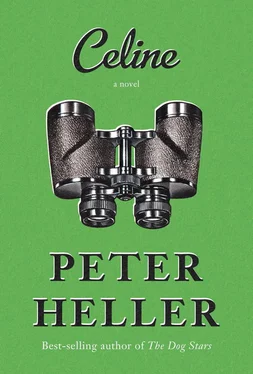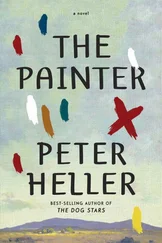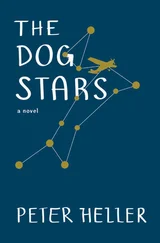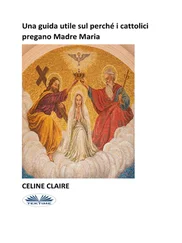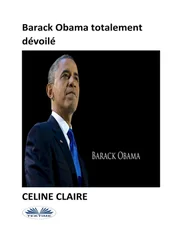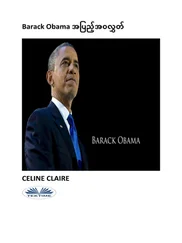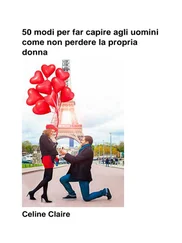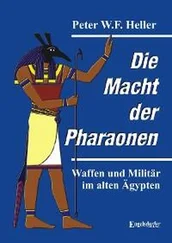“Of course she’d been pushing her luck from the outset. It’s a wonder she even got the sail up and the boat under control. She capsized. A rogue gust I think. She had the presence of mind to hold fast to the sheet. She hauled in on it and pulled herself back to the boat. She actually tried to right it the way Gustav had taught her, standing on the upwind chine and hauling back on the halyard—amazing. The grit. But she didn’t have the weight or the strength. On a quieter day she might have managed it, nothing ever surprises me when it comes to your mother.”
Bobby suddenly looked very sad, and Hank wondered if it was because she was feeling how much she’d soon miss her sister.
She smiled. “If there hadn’t been the Round the Island Regatta that day, I am certain you wouldn’t exist. They came around the point while she was flailing with the mast. As luck would have it, the life jacket she was supposed to be wearing was clipped to the boat and it was bright orange. A Mae West from the war. I think they were the reason Admiral Bill would never go sailing with any of us in the years after: because he couldn’t look at that life jacket. It reminded him of all the sailors he’d left behind in the water.
“In any event, though she was close to a mile off their course she unclipped the jacket and stood up on the wallowing hull using the halyard for balance, and she waved in the lead sloop. Heavens!
“After the lead boat turned they must have all wondered what the hell had gotten into him, and then they must have seen her, too. At the time a rescue must have seemed more glamorous than winning the race. I wish so much I’d have seen it, the line of thirty-odd sloops and yawls and ketches falling off the wind in a graceful turn and running down on little sister. It wasn’t a class race, it was just for fun. It was Jib Rafferty in the lead. Very dashing, a redhead like all his clan. He literally scooped her up. Took one look at the skinny shivering girl, made her put on his itchy sweater, and said, ‘You are a Cheney, not a doubt in my mind. I know right where you belong.’ He had grown up with Baboo, after all. I guess we have a certain look. He towed the dinghy and dropped her off at the beach at Las Armas. The Rafferty place was just two docks south. They called the race and everybody anchored off and they had a party that afternoon and night that went down in island history.”
Hank loved hearing that story. It fit with everything he knew about his mother, and he loved the transformation that came over Bobby as she told it, how she was transported from the room. She was in the past, so he gently said, “Aunt Bobby, do you know anything else about Mom’s baby?”
She studied him. The eye of a photographer must be always framing and focusing, and he thought that the soft gaze with which she had told the story was now tightening down on his face, sharpening the features and calibrating the distances, the depth of field. How much of the background behind him should be revealed?
“She didn’t tell you at all, did she?”
He shook his head.
“Not even that you have a sister.”
“A sister?”
“Yes. Isabel. What she called her.”
“Isabel,” Hank stammered. “Does she know where she is? Has she maintained contact?”
“No. No idea. It’s why she got into the whole PI thing in the first place, I think. Finding her daughter was all she thought about. She tried for years.”
“No clue? I mean she gave her up and has no idea?”
“She had agreed with the whole plan, under duress, mind you, and then once they laid the baby in her arms for the first and last time, she went crazy. She would have run away with her. But she was sedated and they had the sheets like restraints the way they do and they just laid her on Celine’s chest for two minutes and then they took her. Whisked her away. She howled. Mummy told me before she died—we seem to have a tradition of these deathbed confessions, don’t we?—she told me that Celine’s howl burned itself into her soul. Mummy never forgave herself.”
“But who did they give her to? Did Mom have no idea?”
“There was one lead—”
The door that led to the kitchen swung open and Celine swept in. She carried a two-pint tub of Rum Raisin and three spoons. She was tired, Hank could see it around the eyes, but she was cheerful and she brought with her the scent of mown grass. She took one look at her sister and her son and knew that they had not been making idle chitchat.
“You two are thick as thieves. Is it too early for rum and ice cream? They say the alcohol is cooked out or something but I always get a little giddy. Maybe just because it’s so good. Here.” She handed the spoons around and pried off the lid.
Bobby died that night. Hank never got to hear more about the one lead.
“I’m pulling over, Pete. I want to get to know Mr. William Tanner. Do you think that lodge has Wi-Fi?”
“I don’t see why not.”
“Because we’re in the middle of Yellowstone? And I almost just collided with a bison?”
“Ey-yuh. Still.”
“I’m getting peckish anyway, aren’t you? The sign says Fishermen’s Restaurant.”
Set back among tall pines was a long log building with a wide-plank porch and a carved sign on posts featuring a steaming coffee cup, a rainbow trout, and an arched fishing rod. Suspended below it was a white painted sign: BREAKFAST SERVED ALL DAY. Who in their right mind would not pull in?
They had spent the last hour driving around Yellowstone Lake, and when the trees on their right opened up, they looked across wrinkled blue water to big views of the Absarokas. The lake was big, the mountains were big and ragged with snow, the sky was big. Big big big. It would make anyone hungry. Celine parked next to a one-ton pickup with diesel tanks mounted in the bed and a sign on the door that said KELLER DRILLING SERVICES, JACKSON HOLE. The truck had one of those stickers in the back window of a little boy peeing. The word he was peeing on was “Hippies.”
“That’s not very nice,” Celine said. She stopped on the gravel and rifled through her purse and pulled out a plastic mini bottle of Elmer’s Glue and a vial of gold sparkles, the kind young girls sprinkle in their hair for fairy dust. She also found a Q-tip. She smiled at Pa. “Leftover from the detective thing I did at the school,” she said.
Pete was immune to this sort of behavior from Celine and looked on with professional interest: He was an artist, too, after all. Celine switched out her big oval everyday glasses for even bigger rounder reading glasses and carefully dabbed specks of glue all over and around the stream of pee and affixed gold dust to each dollop. It looked like the little boy was pissing fireworks.
“Kidney stones!” she said proudly. “It’ll wash off. Still.”
They made their way into the café. The place was almost full and smelled of bacon and coffee. The waitress took them to a table that looked over a dock with a dozen rental rowboats tied to cleats and a view back across the lake. Pete slid their laptop out of its neoprene case and propped it open on the varnished pine table.
“How long do you think before our friend shows up?” he said. “Taking bets?”
“I didn’t see him at all in the rearview. He’s probably relaxed a little since he fixed the GPS tracker to our chassis.”
Pete smiled. Sudden and surprising. “You know that?”
“Uh-uh. Nope. But why wouldn’t he? I already put ours in the base of the coffee grinder I gave him. I also put one under his truck. I hope the magnet’s strong enough, I’m not sure it’s made for four-wheel drive.”
Читать дальше
